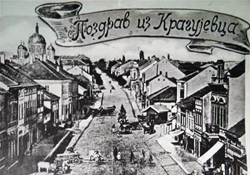
Kragujevac Initiative again in Serbia

Around three years ago, when the management of Radio TV Kragujevac tried to engage a group of businessmen from Kragujevac, whose integrity and origin of capital were beyond any doubt, and make them interested in the shares of their media company, one of them asked an honest question: "Why should I be interested in buying a TV station? I don't intend to participate in elections, and the media cannot survive in the market".
At the same time, 35,000 citizens of Nis signed a petition demanding that the city TV station not be privatized, while the price of a small TV station from Vrnjacka Banja amounted to no less than two million euros.
Already in 2007 it became clear that the adopted model of privatization had badly affected the media situation in Serbia, that the electronic media had been bought by tycoons interested in the commercial real estate of public companies and exertion of political influence, and that the main problem facing the local stations lies in the lack of money, not in the domination of local political structures. Due to all these factors, a group of media outlets (Radio Subotica, TV Nis, RTV Novi Pazar, RTV Presevo, Radio Leskovac, Radio Valjevo, RTV Pancevo and RTV Kragujevac) have launched an initiative that would later become known as "Kragujevac Initiative" – signed in Kragujevac – which demanded formation of regional public service broadcasters and repeal of the legal obligation to privatize these media outlets. The "Kragujevac Initiative" has become one of the rare documents that has been adopted – without any pressure and in its integral version – by the Municipal Assembly of Presevo in Albanian language, by the parliament of Subotica in Hungarian language, and by the assemblies of the cities of Nis and Kragujevac in Serbian language.
During the time that has passed between the launch of the "Kragujevac Initiative" and the debate on the proposed Media Study, most of the privatizations in the media have been annulled, several decent local and regional stations have been shut down (the most drastic example being the TV Kraljevo), while it became clear that the privatization of the media has not achieved the stated goal. The media scene has not been democratized, political influences have not been eliminated, developmental investment in privatized media houses has not increased, journalism has not advanced, the public interest has been sidelined, while the employees have been deprived of even the most fundamental rights from the area of labor law. Regarding the political influence over the media, it has not been eliminated by media privatization, but has actually increased. This is illustrated by the data on behavior of the media during the election campaign, which show a strong influence of financial and political power centers. In the meantime, aside from the existence of the public service broadcaster of Vojvodina, a similar right has been given to the city of Belgrade as stipulated by the Law on the Capital City, placing many citizens living "in the rest of Serbia" in an inferior position. In Belgrade-centric media, other regions are represented using a pattern of "Zikina Sarenica", with all due respect to this programme.
In the opinion of radio and TV houses brought together by the "Kragujevac Initiative", the Media Study that was recently presented by the Ministry of Culture in cooperation with the European Commission experts is one of the rare proposals related to regulation of the media scene in Serbia that pays attention to reality. Recommendations of the Media Study promote the public mission, but also for the first time mention the issue of decentralization of the media scene in Serbia. Fully in accordance with European standards and taking into account the state of the Serbian media, the Study recommends existence of a public service broadcaster in Serbia, as well as independent regional public service broadcasters that would broadcast regional programmes as well as participate in the national public service broadcasting.
Of course, there is no ideal solution, but it is necessary to create good formal mechanisms that would provide freedom of editorial policy, freedom of speech, as well as active participation of citizens in the local community.
Jovanka Marovic
MC Newsletter, September 10, 2010
View all comments (0) Leave a comment
Published comments contain opinions that are not the opinions of Media Center. Responsibility for the content of messages and their accuracy lies on the website users who posted them.
 |
| The content of this article does not necessarily reflect the view of the Media Center. The author bear full responsibility for the content of the text. |




